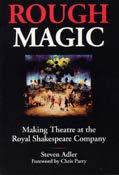2023 Theatre

Paper: 978-0-8093-3874-0
E-book: 978-0-8093-3875-7 $40, 270 pages, 27 illus.


Paper: 978-0-8093-3874-0
E-book: 978-0-8093-3875-7 $40, 270 pages, 27 illus.
“This is a unique and much-needed study of the emergence of the designer as an artistic force in American theatre practice in the early 20th century, and it traces the complex evolution of a theatre designers’ union. David Bisaha also explores how this same union often turned a blind eye to the struggles of women and people of color in the field. This essential book sheds light on a crucial but frequently overlooked aspect of American theatre history.”
Arnold Aronson, author of Ming Cho Lee: A Life in Design
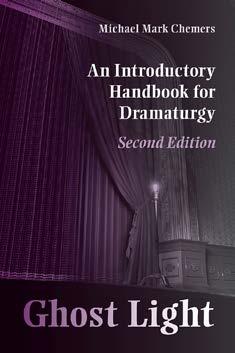 Michael Mark Chemers
Michael Mark Chemers
“With wit, intelligence, and generosity, Michael Mark Chemers offers students a wide range of concrete, practical, and immediate entry points to the work of the dramaturg from classics to new plays, devised theatre, adaptations, and more. Grounded in history, theory, and textual analysis, this comprehensive handbook underscores with great effect the centrality of curiosity, questioning, creativity, collaboration, and expertise to dramaturgy and theatre making as a whole.”—Geoff Proehl, author of Toward a Dramaturgical Sensibility
Read more and order at www.siupress.com/scenicdesign.
The figure of the American theatrical scenic designer first emerged in the early twentieth century. As productions moved away from standardized, painted scenery and toward individualized scenic design, the demand for talented new designers grew. Within decades, scenic designers reinvented themselves as professional artists. They ran their own studios, proudly displayed their names on Broadway playbills, and even appeared in magazine and television profiles.
American Scenic Design and Freelance Professionalism tells the history of the field through the figures, institutions, and movements that helped create and shape the profession. Taking a unique sociological approach, theatre scholar David Bisaha examines the work that designers performed outside of theatrical productions. He shows how figures such as Lee Simonson, Norman Bel Geddes, Jo Mielziner, and Donald Oenslager constructed a freelance, professional identity for scenic designers by working within their labor union (United Scenic Artists Local 829), generating self-promotional press, building university curricula, and volunteering in wartime service.
However, while new institutions provided autonomy and intellectual property rights for many, women, queer, and Black designers were not always welcome to join the organizations that protected freelance designers’ interests. Among others, Aline Bernstein, Emeline Roche, Perry Watkins, Peggy Clark, and James Reynolds were excluded from professional groups because of their identities. They nonetheless established themselves among the most successful designers of their time. Their stories expand the history of American scenic design by showing how professionalism won designers substantial benefits, yet also created legacies of exclusion with which American theatre is still reckoning.
David Bisaha is an assistant professor of theatre history at Binghamton University, State University of New York. His scholarship has been published in Theatre & Performance Design, Theatre Survey, Theatre Journal, Theatre History Studies, and in the edited collections The Routledge Companion to Scenography and Theatre and the Macabre.
Since its release in 2010, Ghost Light: An Introductory Handbook for Dramaturgy has become the international standard for dramaturgy training and practice. The first textbook introduced students to the “ghost light” model of dramaturgy—a creatively engaged, artistically vibrant approach that draws on extensive knowledge of theatre history, practice, and theory—and this second edition brings the conversation up to the present.
Over three parts, author and theory creator Michael Mark Chemers helps students explore the world of the dramaturg. Part 1 describes what dramaturgs do, presents a detailed history of dramaturgy, and summarizes many of the critical theories needed to analyze and understand dramatic texts. Part 2 teaches students to read, write, and analyze scripts through a twelve-step program with suggestions about how to approach various genres and play structures. The final part delves into the relationships dramaturgs forge and offers useful advice about collaborating with other artists. It also includes ideas for audience outreach initiatives such as marketing and publicity plans, educational programs, program notes and lobby displays, and more.
Perfectly suited for the undergraduate theatre classroom, this holistic guide includes chapter exercises for students to practice the skills as they learn. The new edition also incorporates recent theory and new resources on multimedia performance and dramaturgy in the digital age. As the field of dramaturgy continues to shift and change, this new edition of Ghost Light: An Introductory Handbook for Dramaturgy prepares theatre students and practitioners to create powerful, relevant performances of all types.
Michael Mark Chemers founded the Production Dramaturgy Program at Carnegie Mellon University’s School of Drama. He is a professor of dramatic literature and theatre arts and the chair of the Department of Performance, Play & Design at the University of California Santa Cruz. His works include The Monster in Theatre History: This Thing of Darkness and Staging Stigma: A Critical Examination of the American Freak Show, winner of the ATHE Outstanding Book Award (Honorable Mention) of 2009.
Paper: 978-0-8093-3888-7
E-book: 978-0-8093-3889-4 $36, 280 pages, 2 illus.
Read more and order at www.siupress.com/ghostlight.
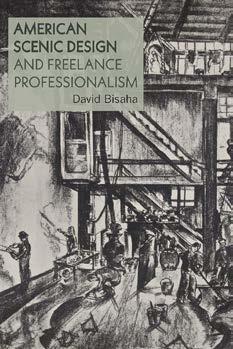
Paper: 978-0-8093-3844-3
E-book: 978-0-8093-3845-0
$35, 362 pages, 2 illus.
Coming April 2022
“Standby is nothing short of groundbreaking, with inspiring and practical insights given at every turn. Joshua Langman has achieved something extraordinary: he shows us step by step how mastering the technical craft of theatrical design is merely the beginning—the real work lives inside an open invitation to create magic on the stage. As Langman explains: ‘Designers are poets masquerading as mechanics.’ After reading Standby, it is impossible to see this sacred calling as anything less.”—Amanda Gronich, dramaturg, The Laramie Project
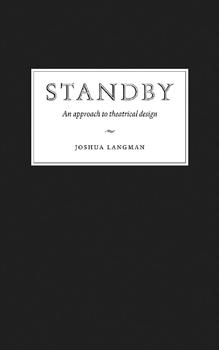
A groundbreaking philosophy of design for the stage
Standby proposes a practical philosophy of contemporary theatrical design that addresses all design disciplines, all theatrical collaborators, and all forms of theatre, from the traditional to the avant-garde. In a field that is too often dismissed as purely technical, Joshua Langman celebrates design as a transformative force with the power to elevate a performance and enable it to resonate beyond the bounds of its physical production. Beginning with the proposition that design contributes essential layers of meaning to an experience, Standby argues for a unique approach centered on the creation of revelatory theatrical moments.
Learn more and order at www.siupress.com/standby.
In a mission to illuminate the soul of the craft, Langman investigates the purposes of design, details the elements of a production concept, uncovers the mechanics of creating meaning, explores the relationship of theatrical design to fine art and art history, and offers practical guidance on designing productions. He also considers what has changed as designers have embraced digital technology and suggests fifteen concrete methods for preserving the magic of live theatre in a digital age. Blending scholarship and storytelling, personal experience and contrarian wisdom, Standby challenges theatre-makers to harness the rich dramatic potential of theatrical design.
For additional information and supplemental materials, please visit www.standbybook.com.
Joshua Langman has designed lighting, sound, and projections for Ensemble Studio Theatre, Summer Shorts, La MaMa ETC, the Jim Henson Foundation, singer/songwriter Cidny Bullens, Brooklyn Gypsies, the 52nd Street Project, and many others. He originated the theatrical design program at Talent Unlimited High School in Manhattan, and he has lectured and facilitated workshops on design at Carnegie Hall and other venues.
“Refreshingly joyful in their embrace of the pleasures of gaming, without losing sight of the primary role of the audience and social identity, Michael Mark Chemers and Mike Sell celebrate the transferable skills of dramaturgy as well as its vital role in building empathy among spectators and consumers of digital media.”—Jane Barnette, author of Adapturgy: The Dramaturg’s Art and Theatrical Adaptation
Systemic Dramaturgy offers an invigorating, practical look at the daunting cultural problems of the digital age as they relate to performance. Authors Michael Mark Chemers and Mike Sell reject the incompatibility of theatre with robots, digital media, or video games. Instead, they argue that technology is the original problem of theatre: How can we tell this story and move this audience with these tools? And if we have different tools, how can that change the stories we tell?
This volume attunes readers to “systemic dramaturgy”—the recursive elements of signification, innovation, and history that underlie all performance—arguing that theatre must be understood as a system of systems, a concatenation of people, places, things, politics, feelings, and interpretations, ideally working together to entertain and edify an audience. The authors discuss in-depth the application of time-tested dramaturgical skills to extra-theatrical endeavors, including multi-platform performance, installations, and videogames. And they identify the unique interventions that dramaturgs can and must make into these art forms.
More than any other book that has been published in the field, Systemic Dramaturgy places historical dramaturgy in conversation with technologies as old as the deus ex machina and as new as artificial intelligence. Spirited and playful in its approach, this volume collates histories, transcripts, and case studies and applies the concepts of systemic dramaturgy to works both old and avant-garde. Between chapters, Chemers and Sell talk with with some of the most forward-thinking, innovative, and creative people working in live media as they share their diverse approaches to the challenges of making performances, games, and digital media that move both heart and mind. This volume is nothing less than a guide for thinking about the future evolution of performance.
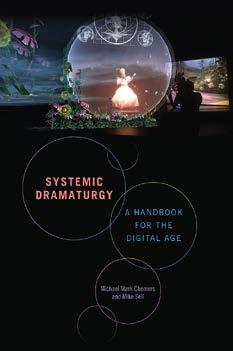
Michael Mark Chemers, professor of dramatic literature at the University of California Santa Cruz, is the author of Ghost Light: An Introductory Handbook for Dramaturgy and Staging Stigma: A Critical Examination of the American Freak Show. He was the founding director of the bachelor of fine arts in dramaturgy at Carnegie Mellon University.
Mike Sell, professor of English at Indiana University of Pennsylvania and member of the Graduate Program in Literature and Criticism, is author of The Avant-Garde: Race Religion War and editor of Playwriting in the 1960s: Decades of American Drama, among other publications.
Paper: 978-0-8093-3831-3
E-book: 978-0-8093-3832-0 $38, 272 pages, 17 illus. Theatre in the Americas Coming April 2022
Learn more and order at www.siupress.com/systemicdramaturgy.
Paper: 978-0-8093-3775-0
E-book: 978-0-8093-3776-7
$45, 322 pages, 9 illus.
Theater in the Americas
“Fried’s odyssey through the postwar American political, business, and theatrical landscape provides a vision of the era unlike any other. Courageous and talented, Fried lived a life that will inspire renewed interest in this remarkable time thanks to Witham’s impressive scholarship and bracing writing.”—James Fisher, author of the Historical Dictionary of American Theater: Beginnings
“Witham’s thoughtful study illuminates the achievements of a man who refused to stop fighting on behalf of American workers, who called out racial, ethnic, and gender bias and abuses of government authority.”—Heather Nathans, author of Hideous Characters and Beautiful Pagans: Performing Jewish Identity on the Antebellum American Stage
Author Barry B. Witham reclaims the work of Manny Fried, an essential American playwright so thoroughly blacklisted after he defied the House Committee on Un-American Activities in 1954, and again in 1964, that his work all but completely disappeared from the canon. Witham details Manny Fried’s work inside and outside the theatre and examines his three major labor plays and the political climate that both nurtured and disparaged their productions. Drawing on never-before-published interview materials, Witham reveals the details of how the United States government worked to ruin Fried’s career.
From Red-Baiting to Blacklisting includes the complete text of Fried’s major labor plays, all long out of print. In Elegy for Stanley Gorski, Fried depicts one of the many red-baiting campaigns that threatened countless unions in the wake of the Taft-Hartley Act and the collusion of the Catholic Church with these activities. In Drop Hammer, Fried tackles the issues of union dues, misappropriation, and potential criminal activities. In the third play, The Dodo Bird, perhaps his most popular, Fried achieves a remarkable character study of a man outsourced from his job by technology and plant closures.
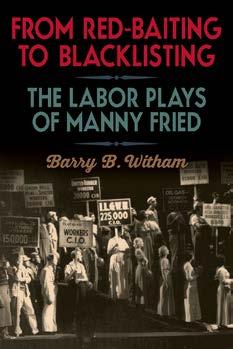
Manny Fried’s plays portray the hard edges of capitalism and government power and illuminate present-day struggles with hostility to labor unions and the passage in several states of right-to-work laws. Fried had no illusions about the government’s determination to destroy communism and unionism— causes to which he was deeply committed.
Barry B. Witham, a professor emeritus of theatre history at the University of Washington, is the editor of Theatre in the United States: A Documentary History and the author of The Federal Theatre Project: A Case Study and A Sustainable Theatre: Jasper Deeter at Hedgerow.
“Dionne has taken the science of project management and translated it into the art of theatre. By distilling foundational concepts into practical examples, he takes the reader on a journey to improve both their personal practices and their production outcomes.”—
Author Rich Dionne reframes the theatre production as a project and provides essential tools for understanding and managing it efficiently, whether it be a stage play, an opera, a dance piece, or other performance that requires the collaboration of the artists and artisans creating the visual and aural landscape for it.
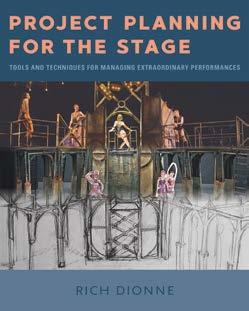
Project Planning for the Stage is organized into four sections corresponding to the life cycle of a theatre production: defining the goals and scope of the production and assembling the crew; planning, estimating, and scheduling; executing and managing; and closing and strike. Each section focuses on relevant concepts and skills and outlines the application of effective project-planning procedures and techniques—including critical path analysis. Dionne provides essential tools for tracking and monitoring a project’s progress and uses examples from different theatre genres to illustrate these processes in clear and concise language.
This book is a valuable addition to the libraries of technical managers in live entertainment. Technical directors, costume shop managers, master electricians, properties masters, and video supervisors—anyone managing even part of a production—needs to understand projectplanning concepts such as the boundaries of authority and responsibility, parametric and bottom-up estimates, and precedence diagrams. The incredibly useful and powerful tools outlined allow any technical manager to deliver the best possible outcome for a production.
Rich Dionne is an assistant professor and faculty technical director in the Patti and Rusty Rueff School of Design, Art, and Performance at Purdue University. He has published articles in TD&T and Stage Directions. He has served as the production manager at the Shakespeare Theatre of New Jersey and as the technical director for the Berkshire Theatre Festival, Alpine Theatre Project, Weston Playhouse Theatre Company, and Dorset Theatre Festival.
Paper: 978-0-8093-3689-0 E-book: 978-0-8093-3690-6 $39, 200 pages, 47 illus.Mark Shanda, coauthor of Draftingfor the Theatre
Paper: 978-0-8093-3627-2
E-book: 978-0-8093-3628-9
$45, 268 pages, 10 illus.
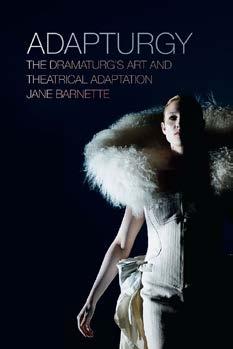
“Adapturgy is a razor-sharp introduction to adaptation as dramaturgy in action. Best of all, Barnette consistently works to broaden our sense of the potential for theory and practice to inform one another.”—Geoff Proehl, author, Toward a Dramaturgical Sensibility: Landscape and Journey
“This timely and highly readable book, based in large part on personal experiences of spectatorship and astute readings of the work of often unfamiliar artists, is an essential guide to ways in which technological advances, neoliberal globalization, and environmental crises are impacting the form and function of contemporary performance.”
Mike Pearson, author of Site-Specific Performance
“This book is the first to tackle literary adaptation for theatre from a dramaturgical perspective, providing an up-to-the-minute treatment of a still-blossoming area of theatre practice. I am eager to use it for my next seminar in dramaturgy.”—Felicia Hardison Londré, author, “Love’s Labour’s Lost”: Critical Essays
Dramaturg Jane Barnette has put together an essential guide for theatre scholars and practitioners seeking to understand and participate in the process of adaptation for the stage. Employing the term “adapturgy”—her neologism for the art of adaptation dramaturgy—Barnette redefines the dramaturg’s role and thoroughly refutes the commonplace point of view that adapted works are somehow less creative than “original” plays.
The dual nature of dramaturgy and adaptation as both process and product is reflected in the structure and organization of the book. Part 1 explores the ways that linking adaptation to dramaturgy advances our understanding of both practices. Part 2 demonstrates three different methods—each grounded in a detailed case study—for analyzing theatrical adaptations. Part 3 offers concrete strategies for the dramaturg: dramaturgy for the adapted script; the production dramaturgy of stage adaptations; and the role of the dramaturg in the postmortem for a production. Rounding out the book are two appendixes containing interviews with adapters and theatre-makers and representative program notes from different play adaptations.
Plays adapted from literature and other media represent a rapidly growing part of the theatre. This book offers both practical and theoretical tools for understanding and creating these new works.
Jane Barnette is an assistant professor and the director of graduate studies in the theatre department at the University of Kansas. She serves as regional vice president for the Literary Managers and Dramaturgs of the Americas and conference planner for the Theory and Criticism Focus Group of the Association for Theatre in Higher Education. She has published essays in the Journal of Adaptation in Film and Performance and Text and Performance Quarterly and in the edited collection The Routledge Companion to Dramaturgy.
“Ferdman’s work documents—with clarity and articulate purpose—a major shift in performance/theatre that is ongoing and under way, and it succeeds in articulating a method of analyzing and understanding the wide range of performances that take place outside and beyond conventional building-based theatre spaces.”—Lesley Ferris, coeditor of Contemporary Women Playwrights: Into the Twenty-First Century
Contextualizing the techniques and methods of the incredibly rich and vital genre of site-specific performance, author Bertie Ferdman traces the evolution of that term. Originally used for experimental staging practices and then later also for engaged situational events, site-specific is no longer sufficient for the genre’s many contemporary variations.
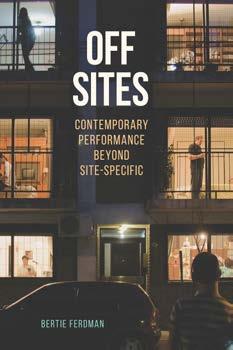
Using the term off-site, Ferdman illustrates five distinct ways artists have challenged the disciplinary framework of site-specific theatre: blurring the traditional boundaries between the fictional and the real; changing how the audience and actor interact with each other and whether they are physically together or apart; fabricating sites from physically bound, conceptually constructed, or virtual spaces; staging live situations in real/nonreal and often mediated encounters; and challenging our preconceived notions of time and space. Tracing the genealogy of site-based work through the twentieth and twenty-first centuries, Ferdman outlines the theoretical groundwork for her study in the introduction. Individual chapters focus on distinct types of off-sites— the interdisciplinary discourse of disciplinary sites; the spaces of audience engagement with spectator sites; the dislocation of time for temporal sites; and the historiographical spaces of mapping for urban sites
Ferdman examines site-based work being done in the Americas by contemporary companies and artists experimenting with new forms and practices for site-driven theatre. Key productions discussed include Private Moment by David Levine, Geyser Land by Mary Ellen Strom and Ann Carlson, Jim Findlay’s Dream of the Red Chamber, and Lola Arias’s Mi Vida Después
Bertie Ferdman is a contemporary performance scholar whose essays have appeared in TDR, Theater, PAJ, Theatre Journal, Theatre Survey, Performance Research, TCG, and HowlRound. She is an associate professor at the Borough of Manhattan Community College at the City University of New York.
Paper: 978-0-8093-3470-4
E-book: 978-0-8093-3471-1 $42, 212 pages, 36 illus.
As seen on Playbill ’s list of “8 New Theatre Books You Need to Read This Summer.”
Californios, Anglos, and the Performance of Oligarchy in the U.S. West Andrew Gibb
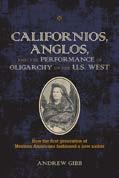
Paper: 978-0-8093-3647-0 $50, 268 pages, 22 illus.
Swim Pretty: Aquatic Spectacles and the Performance of Race, Gender, and Nature

Jennifer A. Kokai
Paper: 978-0-8093-3600-5 $45, 256 pages, 18 illus.
Theatre and Cartographies of Power: Repositioning the Latina/o Americas
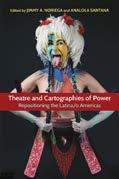
Edited by Jimmy A. Noriega and Analola Santana
Paper: 978-0-8093-3631-9
$50, 320 pages, 15 illus.
Backwards & Forwards: A Technical Manual for Reading Plays
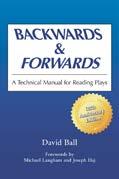
David Ball
Paper: 978-0-8093-1110-1
$22, 112 pages
Memory, Transitional Justice, and Theatre in Postdictatorship Argentina Noe Montez Paper: 978-0-8093-3629-6 $50, 262 pages, 11 illus.
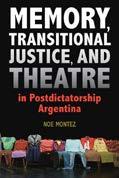
Drafting for the Theatre
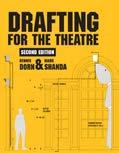
Dennis Dorn and Mark Shanda Paper: 978-0-8093-3037-9 $66, 320 pages, 449 illus.
Staging Social Justice: Collaborating to Create Activist Theatre
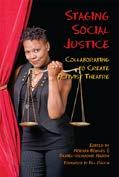
Edited by Norma Bowles and DanielRaymond Nadon Paper: 978-0-8093-3238-0 $39, 328 pages, 1 illus.
Cuba Inside Out: Revolution and Contemporary Theatre

Yael Prizant Paper: 978-0-8093-3308-0 $45, 192 pages, 22 illus.
Stage for Action: U.S. Social Activist
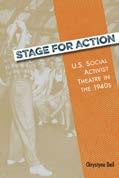
Theatre in the 1940s
Chrystyna Dail
Paper: 978-0-8093-3542-8
$45, 216 pages, 9 illus.
Staging the Savage God: The Grotesque in Performance
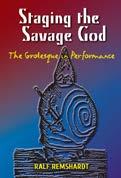
Ralf Remshardt
Paper: 978-0-8093-3551-0
$39, 320 pages, 9 illus.
Experiments in Democracy: Interracial and Cross-Cultural Exchange in American Theatre, 1912-1945
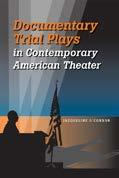

Edited by Cheryl Black and Jonathan Shandell Paper: 978-0-8093-3468-1
$45, 320 pages, 22 illus.
Presidential Libraries as Performance: Curating American Character from Herbert Hoover to George W. Bush
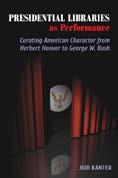
Jodi Kanter
Paper: 978-0-8093-3520-6
$35, 198 pages, 17 illus.
Documentary Trial Plays in Contemporary American Theater
Jacqueline O’Connor Paper: 978-0-8093-3236-6 $45, 248 pages
Words at Play: Creative Writing and Dramaturgy
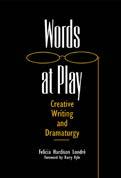
Felicia Hardison Londré Paper: 978-0-8093-2680-8 $36, 272 pages
Walking on Fire: The Shaping Force of Emotion in Writing Drama
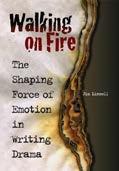
Jim Linnell Paper: 978-0-8093-3047-8 $33, 144 pages, 3 illus.
Stage Rigging Handbook, Third Edition
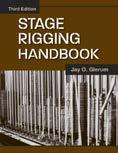
Jay O. Glerum
Paper: 978-0-8093-2741-6 $40, 320 pages, 222 illus.
Methods and Practice of Elizabethan Swordplay

Craig Turner and Tony Soper
Paper: 978-0-8093-3518-3
$21, 168 pages, 17 illus.
Childhood and Nineteenth-Century American Theatre: The Work of the Marsh Troupe of Juvenile Actors
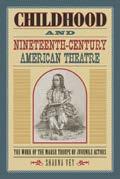
Shauna Vey
Paper: 978-0-8093-3438-4
$45, 224 pages, 15 illus.
Working in the Wings: New Perspectives on Theatre History and Labor
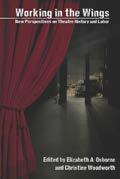
Edited by Elizabeth A. Osborne and Christine Woodworth
Paper: 978-0-8093-3420-9
$45, 264 pages, 9 illus.
Jeppe of the Hill and Other Comedies by Ludvig Holberg

Translated by Gerald S. Argetsinger and Sven H. Rossel
Paper: 978-0-8093-3373-8
$34, 368 pages, 1 illus.
American Political Plays after 9/11
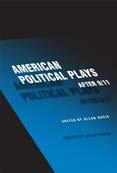
Edited by Allan Havis Paper: 978-0-8093-2954-0 $29.95, 304 pages
My Life in Vaudeville: The Autobiography of Ed Lowry

Ed Lowry, Edited by Paul M. Levitt Paper: 978-0-8093-3016-4 $45, 256 pages
Richard Barr: The Playwright’s Producer
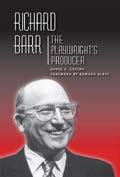
David A. Crespy Paper: 978-0-8093-3140-6 $45, 312 pages, 20 illus.
Theatrical Scene Painting: A Lesson Guide
William H. Pinnell Paper: 978-0-8093-2765-2 $40, 272 pages, 252 illus.
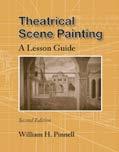
Shadowed Cocktails: The Plays of Philip Barry from Paris Bound to The Philadelphia Story

Donald R. Anderson Paper: 978-0-8093-2991-5 $50, 238 pages, 1 illus.
Shattered Applause: The Lives of Eva Le Gallienne
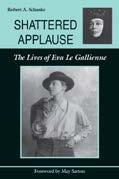
Robert A. Schanke
Paper: 978-0-8093-3008-9 $42, 344 pages, 42 illus.
Junius Brutus Booth: Theatrical Prometheus
Stephen M. Archer
Paper: 978-0-8093-3000-3 $39, 364 pages 36 illus.
Gambler’s Instinct: The Story of Broadway Producer Cheryl Crawford
Milly S. Barranger
Paper: 978-0-8093-2958-8
$29.95, 272 pages, 14 illus.
Performing Loss: Rebuilding Community through Theater and Writing

Jodi Kanter
Paper: 978-0-8093-2780-5 $31, 248 pages, 7 illus.
Entertaining the Nation: American Drama in the Eighteenth and Nineteenth Centuries
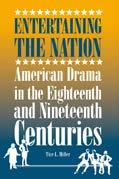
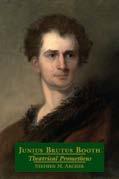
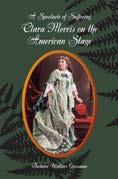
Tice L. Miller
Paper: 978-0-8093-2778-2 $42, 238 pages
Angels in the American Theater

Patrons, Patronage, and Philanthropy
Edited by Robert A. Schanke
Paper: 978-0-8093-2747-8 $39, 320 pages, 15 illus.
Vaudeville Humor: The Collected Jokes, Routines, and Skits of Ed Lowry
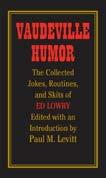
Edited with an Introduction by Paul M. Levitt

Paper: 978-0-8093-2720-1 $20.95, 472 pages
The Hanlon Brothers: From Daredevil Acrobatics to Spectacle Pantomime, 1833-1931
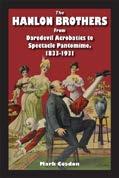
Mark Cosdon
Paper: 978-0-8093-2925-0
$36, 200 pages, 20 illus.
Lighting the Shakespearean Stage, 1567–1642
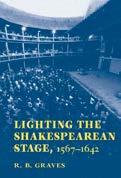
R. B. Graves
Paper: 978-0-8093-2934-2 $39, 288 pages, 35 illus.
Joseph Holloway’s Abbey Theatre: A Selection from His Unpublished Journal
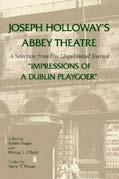
“Impressions of a Dublin Playgoer”
Edited by Robert Hogan and Michael J. O’Neill Paper: 978-0-8093-2937-3 $39, 316 pages
Spectacle of Suffering: Clara Morris on the American Stage
Barbara Wallace Grossman
Paper: 978-0-8093-2882-6
$42, 344 pages, 24 illus.
Messiah of the New Technique: John Howard Lawson, Communism, and American Theatre, 1923-1937
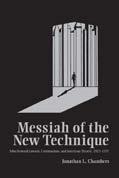
Jonathan L. Chambers
Cloth: 978-0-8093-2699-0 $55, 296 pages, 12 illus.
Unfinished Show Business: Broadway Musicals as Works-in-Process
Bruce Kirle
Paper: 978-0-8093-2667-9 $39, 312 pages
Caffe Cino: The Birthplace of Off-Off-Broadway
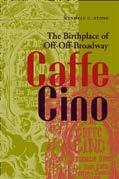
Wendell C. Stone
Paper: 978-0-8093-2645-7 $39, 264 pages, 19 illus.
A Student Guide to Play Analysis
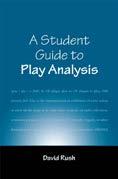
David Rush
Paper: 978-0-8093-2609-9 $36, 320 pages
Women in Turmoil: Six Plays by Mercedes de Acosta

Edited and with an introduction by Robert A. Schanke
Paper: 978-0-8093-2510-8
$39, 288 pages, 3 illus.
The Humana Festival: The History of New Plays at Actors Theatre of Louisville
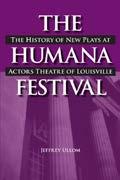
Jeffrey Ullom
Paper: 978-0-8093-2849-9
$42, 264 pages
Unfriendly Witnesses: Gender, Theater, and Film in the McCarthy Era
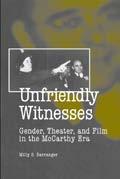
Milly S. Barranger
Paper: 978-0-8093-2876-5
$42, 224 pages, 9 illus.
Contemporary Latina/o Theater: Wrighting Ethnicity

Jon D. Rossini
Paper: 978-0-8093-2830-7
$42, 272 pages
Composing Ourselves: The Little Theatre Movement and the American Audience
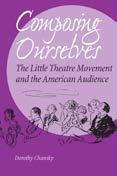
Dorothy Chansky

Paper: 978-0-8093-2649-5 $39, 316 pages, 15 illus.
Creating Historical Drama: A Guide for Communities, Theatre Groups, and Playwrights
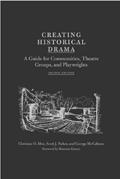
Christian H. Moe, Scott J. Parker, and George McCalmon Cloth: 978-0-8093-2642-6 $50, 336 pages
On Broadway: Art and Commerce on the Great White Way
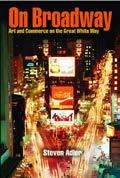
Steven Adler Paper: 978-0-8093-2593-1 $39, 272 pages
Rough Magic: Making Theatre at the Royal Shakespeare Company
Steven Adler Paper: 978-0-8093-2377-7 $39, 296 pages, 34 illus.
